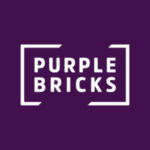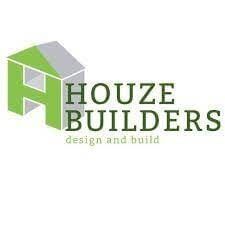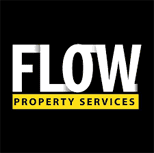Over the last 15 years, we’ve worked with many online estate agents, property buyers, property portals, and local estate agents.
I thought it would be good to share our strategies to help those of you in the industry who we haven’t worked with.
These are some of the more advanced strategies we use.
I won’t be going over the basics such as page titles and meta descriptions which have been covered to death already online.
So if you’re comfortable and I have your full attention, let’s get right into it.
One of the main issues most people in your industry have is trying to compete with the likes of RightMove and Zoopla


To manage your expectations, I can tell you we won’t be able to outrank them on their core property-related keywords – they are just too big, and have a lot of authority with the search engines.
We also understand it’s not practical to use paid Google ads due to the high costs.
So how do you reduce your reliance on these portals without paying for ads? Well, the answer is still SEO, but it’s going to be our smart SEO strategy.
So rather than look at the highest traffic keywords and try to figure out how to beat the likes of RightMove, we need to go back a step and think about The Buyer’s Journey.
Whether buyers are shopping for cars, hammers or a holiday in Europe, the Internet has changed how we decide what to buy. At Google, they call this online decision-making moment the Zero Moment of Truth, or simply, ZMOT. The ZMOT refers to the moment in the buying process when the consumer researches a product prior to purchase.
There are three main stages in the Buyer’s Journey:

Being aware of these stages allows us to target keywords throughout the journey and maximise conversions.
The Awareness Stage is very early in the journey. Here we’d need to target very generic keywords about the local area. For example, we’d be looking at keywords such as ‘things to do in Chelsea’, ‘best restaurants in Leicester’ – we’re looking to build awareness for your brand in the relevant areas.

The Consideration Stage would be around the middle in the journey. For the property market this could be as early on as someone thinking about moving to a different area with better schools, more jobs, lower crime rates or even better weather. They’re not necessarily ready to hiret an estate agent or look for properties yet.
The Decision Stage would obviously be where the user intent is to search for a property, e.g. ‘2 bedroom apartment in Hammersmith’. These keywords will be the most competitive and could take the longest to rank for. Obviously this depends on the particular keywords and areas e.g. ‘London’ would be much more difficult when compared to ‘Hawkshead’ related keywords.
Now that we understand the Buyer’s journey we’re able to focus on the types of pages for the website.
By the way, this process also applies to a seller’s journey. It’s more than likely you’re looking for property inventory to sell. This process is just as important. Everything for building the brand and awareness early on in the journey to sellers researching other properties for sale in the area is important.
Let’s take a closer look at the types of pages we’d recommend building for your website and how they fit into the user journey.
1. Listing pages
2. Neighbourhood pages
3. Resource pages
First, Listings. Depending on the size of your property inventory and turnover of properties, these could create the most work for you.
You need to weigh up how important these pages are for you if you are already listing via portals such as RightMove. Building these pages well takes considerable effort.
It’s best if you can automate this process as much as possible. From creating the description to uploading photos and floor plans optimising the SEO elements such as Page Titles, Meta Tags and keywords.

You should also remember that most of this content will then be fed to the portals and displayed there, effectively creating duplicate content. Whilst we can use tags to tell Google this is your content, they are still going to most likely favour the portals as they will have more authority.
Many of our clients quickly realise that these pages are probably not as important as they first thought.
The Neighbourhood Pages will include information about the local area. Things such as local schools, restaurants, bars, clubs and other things to do. Anything which you can think of that are important to a particular area should be put on these pages so we can dominate the search results in those areas.
The Resource Pages can be very powerful for attracting buyers and also sellers. All we have to do is think about the user’s intent. Here are some examples.
1. A guide to buying or selling property;
2. How to maximise the selling price of your property;
3. The best restaurants in ABC areas;
4. How to value your property;
Of course, there is a process for creating these articles. Briefly, we would research the keywords and their search volume in Google, we’d then suggest how to group the keywords and structure the article for lead generation. Optimising these pages is crucial as is ensuring you have the best content available for that particular topic.
Another advanced strategy we use is to create content clusters around a particular topic or issue faced by buyers or sellers.
Understanding intent is crucial for creating these resources. For example let’s look at student housing as we’ve worked with some providers in this sector. Students will generally be driven by factors such as locality to campus, security, pricing and local entertainment. We could therefore look at creating a student resource centre for each university location we’re targetings. We could cover topics such as:
1. How much is student accommodation in XYZ?
2. How to get the best deal on student housing.
3. Best student bars near ABC.
4. Safest areas for students to live in XYZ.
We’d create a single landing page such as ‘The Ultimate Student’s Guide to ABC University’, optimise this for the target keywords and then link to the above articles.
If done correctly, this creates a huge amount of authority in Google’s eyes.
The same technique can be applied to any type of property-related search. For example, if trying to attract sellers with property to sell.
The final part of a successful campaign will be link building. If you’re new to SEO, this is the process of building backlinks from other websites back to yours.
Ideally, these should be from industry-related websites but this is not always possible. We tend to focus on bloggers, especially local bloggers who in this case are writing about the property.
However, this can also be expanded to business-related websites, interior design, architecture and many others – it depends on your particular business.
The number of links and aggressiveness of link building depends on several factors such as how established your website and brand are, how many links you already have, the Domain Authority of your website and where you sit compared to your competitors.
Now is also probably a good time to mention how important the budget is for link building. Whilst paying for links isn’t a good idea, there are other related costs such as content production, time to research and outreach to bloggers and publication fees which are sometimes charged by webmasters.
So how do we find these websites? The first step is to build a database of relevant blogs and websites, and then find the contact details for the webmaster or editor. You can do this through Google Search, Instagram and LinkedIn. You then need to pitch them to try and get a link. This could be as simple as writing a great article which they’d be interested in publishing.
So what kind of results can you expect for your website? Well if done correctly these techniques can have a huge impact on your business.


Just looking at the progress of this one client over a 12-month period we can see:
Top 3 keywords increased by 120%
Top 10 keywords increased by 188%
Traffic increased by 25%
This is just one example. We’ve used this strategy for hundreds of clients and the results speak for themselves.
So if you’re looking to improve the bottom line of your estate agency or property company then get started on this strategy now. If you don’t have the time then get in touch and let us handle it all for you.

 Organic
Organic  Digital Advertising
Digital Advertising  Resources
Resources  Content Marketing
Content Marketing  Resources
Resources  Who We Are
Who We Are 










